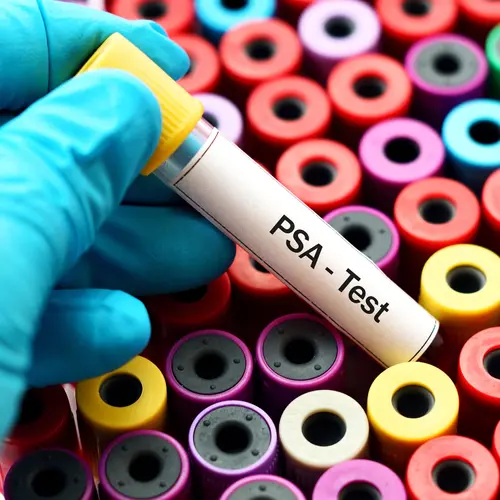New treatments and new combinations of them are giving men with advanced prostate cancer more help than ever.
“Never before have we had such a wide array of options,” says Neha Vapiwala, MD, associate professor of radiation oncology at the Hospital of the University of Pennsylvania.
New Treatments
The FDA has approved new anti-androgen medications. These drugs stop your prostate cancer tumors from growing by bringing testosterone levels down. That starves prostate cancer cells of the fuel they need.
These new medicines include:
- Abiraterone acetate (Zytiga)
- Apalutamide (Erleada)
- Enzalutamide (Xtandi)
Apalutamide and enzalutamide are androgen receptor (AR) inhibitors that go to work outside the cells. Abiraterone acetate is a CYP17 inhibitor that slows production of androgens inside the cells. Research has shown how well these drugs can delay cancer growth, in many cases by years.
Earlier Treatments
These newer drugs were first approved for use only after other treatments stopped working. Research now suggests that using them earlier can help.
Lawrence Fong, MD, leader of the Cancer Immunotherapy Program at the UCSF Helen Diller Family Comprehensive Cancer Center, says these drugs are now being used along with something called androgen deprivation therapy (ADT) rather than just waiting for ADT to stop working.
Androgen deprivation therapy cuts off the supply of the male androgen hormones that prostate tumors use for fuel. It’s thought of as a form of chemical castration. When these drugs stop working, your cancer is called “castration resistant.”
Research shows that using enzalutamide or abiraterone acetate along with ADT lowered the chances of the cancer spreading or death compared to ADT alone.
“It demonstrates you don’t have to use things in sequence. You can use them in combination and you can use them early on,” Vapiwala says.
“We don’t have to wait for one treatment to fail to start another.”
New Combinations
New pairings of approved therapies that improve prostate cancer treatment are also in use, including:
- A combination of radiation therapy and androgen deprivation therapy for men with recurrent prostate cancer.
- Giving the chemotherapy drug docetaxel (Taxotere) along with ADT.
But because the chemotherapy drug can be hard on the body, researchers recommended giving this combination only to “adequately fit men.”
Ongoing Research
Clinical trials continue to look at other combinations of treatments. One is exploring the pairing of the chemotherapy drug cabazitaxel (Jevtana) with ADT and radiotherapy for high-risk men.
Other trials are exploring how well the immunotherapy prostate cancer drug sipuleucel-T (Provenge) works with radiation therapies like radium-223 (Xofigo).
Provenge is also called a cancer vaccine. Immunotherapy helps your own immune system target cancer cells. It's already used to treat other cancers. Pembrolizumab is another immunotherapy drug used for certain types of prostate cancers that have a DNA change.
Researchers are now on the hunt for new ways to use the body’s immune system to target prostate cancer tumors. Possibilities include combining sipuleucel-T with the checkpoint inhibitors indoximod or ipilimumab (Yervoy). Checkpoint inhibitors are designed to boost your body’s immune response. Other clinical trials are testing different immunotherapy treatments and checkpoint inhibitors.
The move to use androgen receptor drugs earlier against prostate cancer means researchers are going to need to come up with new treatments when the prostate cancer becomes resistant to the AR drugs and they begin to fail, Fong says.
One possibility is bromodomain and extraterminal (BET) inhibitors. Cancers have BET proteins. In one study, BET inhibitors worked well against prostate cancer that had become resistant to the AR drug enzalutamide.
Researchers are looking beyond cancer drugs, too.
The diabetes drug metformin (Glucophage) is safe and inexpensive. A large clinical trial in the United Kingdom and Switzerland is looking at whether adding metformin for folks who are treated with hormone therapy can help prevent metabolic syndrome and help people live longer.

